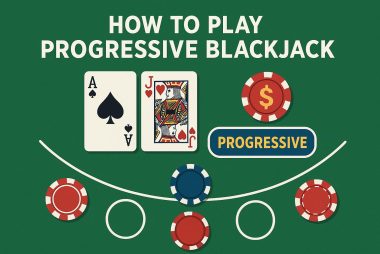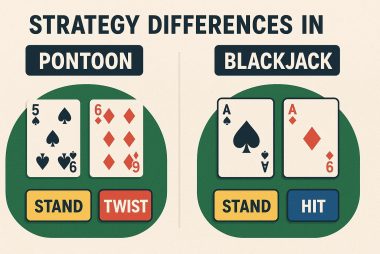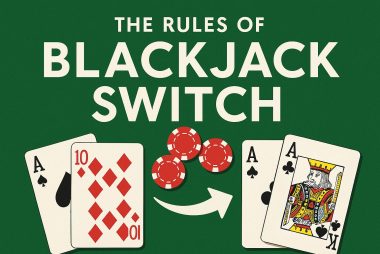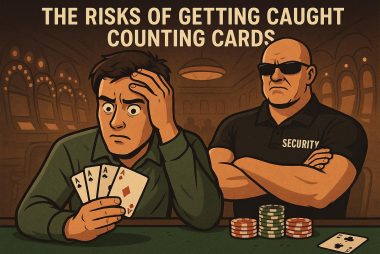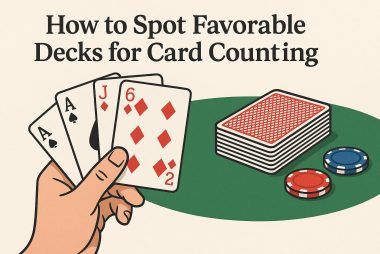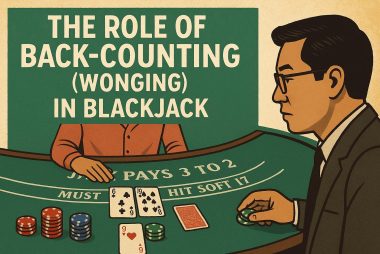The differences between European and American blackjack
The Basics of European and American Blackjack
Blackjack is a popular casino game enjoyed worldwide, with two of the most prevalent variations being European and American blackjack. Understanding the distinctions between these versions can enhance a player’s strategic approach and overall experience. By familiarizing themselves with the rules, nuances, and key differences in gameplay, players can tailor their strategies accordingly to potentially increase their odds of success.
Card Distribution and Decks Used
The number of decks used in a game of blackjack can significantly influence the game’s dynamics. In European blackjack, typically two decks of cards are used. The relatively low number of decks simplifies the card counting process, allowing players to keep better track of the cards already played, which can be an advantage for skilled card counters.
In contrast, American blackjack often employs six to eight decks. This increased number of decks adds complexity to card counting strategies, making it more challenging to predict which cards remain in play. This difference in deck size requires players to adopt different approaches depending on the version of the game they are engaging with, thus affecting the probability of certain outcomes.
Dealer’s Hole Card
A key difference between European and American blackjack lies in how the dealer handles their hole card, which is the card dealt face down. In American blackjack, the dealer receives their hole card immediately after the initial deal. If the dealer’s visible card is an Ace, they will check the hole card before the players proceed with their turns. If the dealer has a blackjack, the game ends immediately, and players lose their bets unless they also have a blackjack.
Conversely, in European blackjack, the dealer does not receive a hole card until players have completed their turns. This rule adds a layer of uncertainty for players, as they make decisions without knowing the dealer’s complete hand. Consequently, players might strategically hit or double down, only to discover later that the dealer possesses a blackjack, resulting in the loss of their bets. This variation of play increases the risk involved and makes strategy adjustments essential for players focused on maximizing their potential for success.
Player Options and Rules
Both versions allow players to hit, stand, or split their cards. However, the rules governing these moves can differ significantly between the two versions. In European blackjack, there are limitations regarding doubling down. Players can only double down on hands with a total value of 9, 10, or 11, which restricts their ability to capitalize on favorable situations during the game.
This restriction contrasts with American blackjack, where players can double down on any combination of cards. This greater flexibility in doubling down allows American players to take advantage of more opportunities to increase their potential gains.
Furthermore, the option to surrender, which allows players to forfeit half their bet if they believe they have a losing hand, is typically available in American blackjack. This option enables players to cut their losses under unfavorable circumstances and effectively manage their bankroll over a longer gaming session. However, surrendering is generally not an available choice in European blackjack, requiring players to play more cautiously to avoid significant losses.
House Edge
The rules regarding the dealer’s hole card and the player’s options directly affect the house edge in each blackjack variant. The house edge represents the advantage held by the casino over the players and is a crucial factor for players to consider when formulating their strategies.
Generally, the house edge is slightly higher in European blackjack due to the limitations on doubling down and the lack of a surrender option. These restrictions can increase the difficulty of adopting strategies such as card counting, and they may necessitate an adjustment in betting approaches for players seeking to minimize the house’s advantage over them.
Conclusion
Understanding the differences between European and American blackjack can significantly influence a player’s strategy and potentially improve their odds. By recognizing the gameplay nuances specific to each version, players can adapt their techniques and take full advantage of favorable situations.
For players eager to explore more about blackjack strategies and the differences between variations, consider visiting informative resources such as casino guides or expert gaming websites for further reading. These resources can offer valuable insights and tips on how to enhance one’s chances of winning in blackjack and other related casino games. By educating themselves about the detailed aspects of different blackjack versions, players can fine-tune their strategies and enter the casino with confidence and a deeper understanding of the game.



